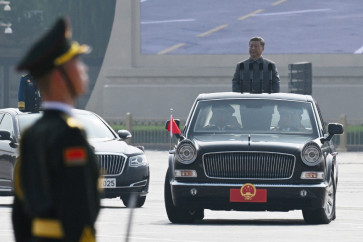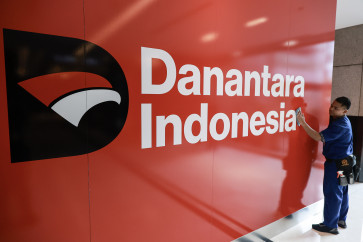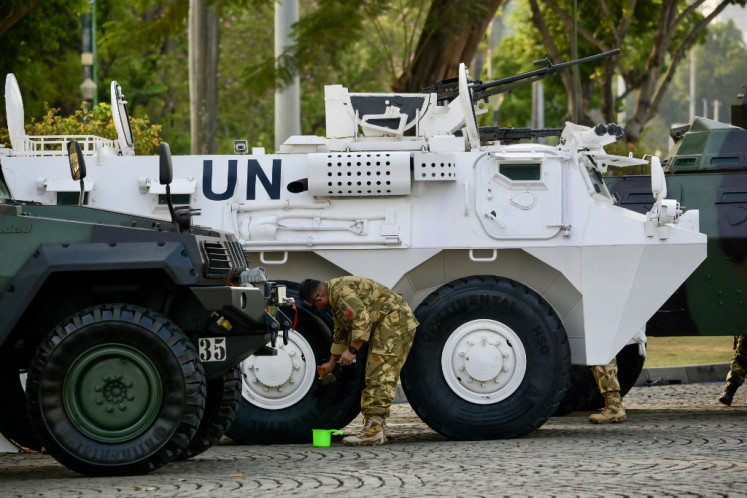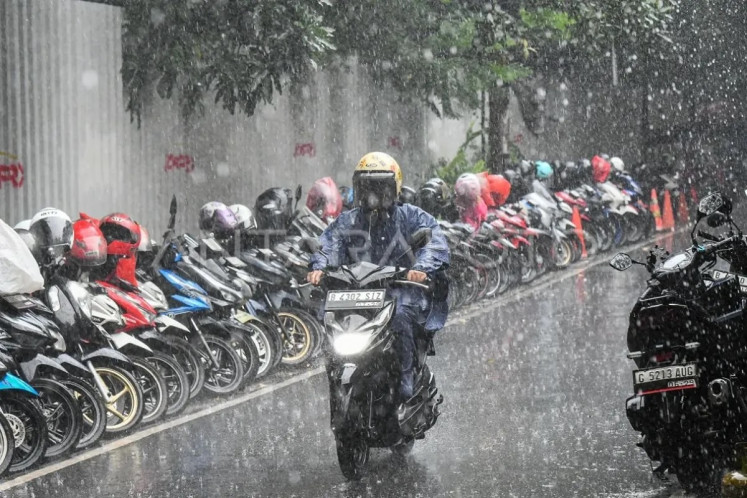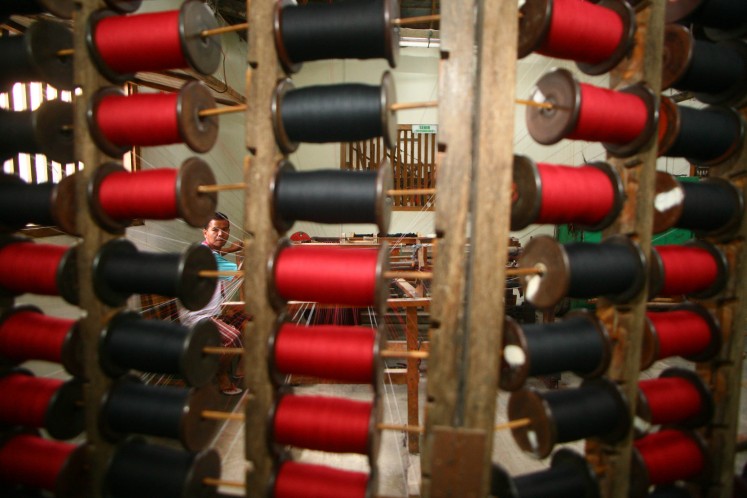Popular Reads
Top Results
Can't find what you're looking for?
View all search resultsPopular Reads
Top Results
Can't find what you're looking for?
View all search resultsChina woos ASEAN to counter US power
Banking on support from ASEAN countries to counter the strong US presence in the Asia-Pacific region, China has softened its stance on sensitive issues such as the South China Sea border dispute, while promising ASEAN huge investments
Change text size
Gift Premium Articles
to Anyone
B
anking on support from ASEAN countries to counter the strong US presence in the Asia-Pacific region, China has softened its stance on sensitive issues such as the South China Sea border dispute, while promising ASEAN huge investments.
In her tour to Asia and the Pacific to bolster the US presence in the region, US Secretary of State Hillary Clinton will join leaders of ASEAN plus China, Japan, South Korea, India, Australia, New Zealand and Russia at the East Asia Summit (EAS) on Saturday in a meeting that will likely tackle global issues, most relating to China.
The issues include the global currency war and the South China Sea and other territorial disputes.
To prove the US’ commitment to balancing China’s growing influence in the region, now seen as the engine of growth for the world’s economy, US President Barack Obama will also travel to the region, including to India and Indonesia, before attending a G20 summit in South Korea.
Observers say the meeting in Hanoi is where both China and the US can gain support from major countries before the real encounter at the G20 next month in South Korea.
During a meeting between Chinese Prime Minister Wen Jiabao and ASEAN leaders here Friday, the world’s second-largest economy agreed to form a working group with ASEAN to make more clear the document of conduct (DOC) on the South China Sea.
China’s willingness to discuss the South China Sea with ASEAN rather than settling the border dispute with individual countries is seen as a new approach that can lower tensions within the sea territory, which is believed to contain huge reserves of natural resources.
Wen told ASEAN leaders that China strived to seek an “ultimate solution” to South China Sea issues to create “peace, cooperation and friendship” in the region.
“The mood of the meeting is one of cooperation,” Indonesian Foreign Ministry director general for ASEAN cooperation Djauhari Oratmangun said after the meeting.
Wen also announced at the meeting that China would provide US$17 billion in regional cooperation funds to help ASEAN enhance its infrastructure under the Master Plan on ASEAN Connectivity, on top of $10 billion in investment fund.
“China has also announced it will provide $15 billion worth of credit facilities,” Djauhari added.
On Saturday, the EAS will officially accept the US and Russia as members, meaning leaders of both countries can attend the summit of ASEAN and six other countries.
Indonesia, which will take over the chairmanship of ASEAN from Vietnam next year, reiterated Friday that it would work to stop the region falling into a Cold War-like environment of mutual suspicion and hostility while striving to maintain an absence of a preponderant power given the possibility that the US and China could use the region to fight a proxy war for influence.
“For Indonesia, this is consistent with our desire to see dynamic equilibrium in our region,” Djauhari said.
Washington and Beijing have clashed this year over issues including the value of China’s currency, US arms sales to Taiwan and Obama’s meeting in February with the Dalai Lama, the exiled Tibetan spiritual leader.
China’s relations with its neighbors have also been strained by territorial disputes — notably with Japan — but also with Southeast Asian nations that have competing claims in the South China Sea.
Speaking in Honolulu, Clinton, however, denied that the US was seeking to contain China as she began a two-week trip to an Asia-Pacific region rattled by recent Chinese assertiveness.
Friends or foes?: Japanese Prime Minister Naoto Kan (right) and Chinese Premier Wen Jiabao look in opposite directions as they arrive for 13th ASEAN Plus Three Summit on the sidelines of the 17th ASEAN Summit in Hanoi on Friday. Ties between China and Japan deteriotated last month following the detention of a Chinese fishing boat captain by the Japanese coast guard after their boats collided near disputed islands in the East China Sea. Reuters/Damir Sagoli


